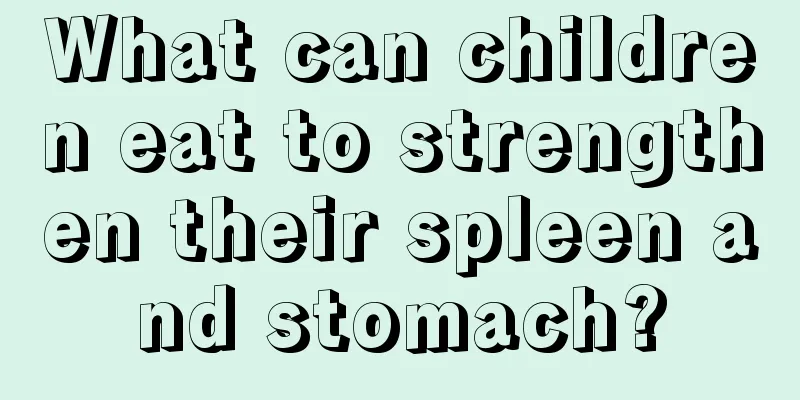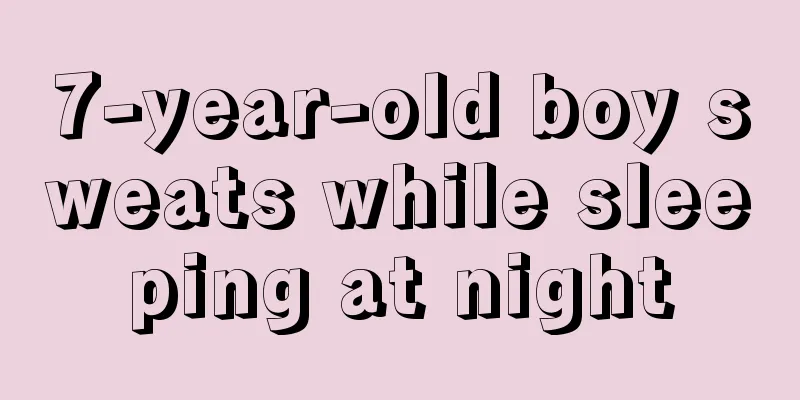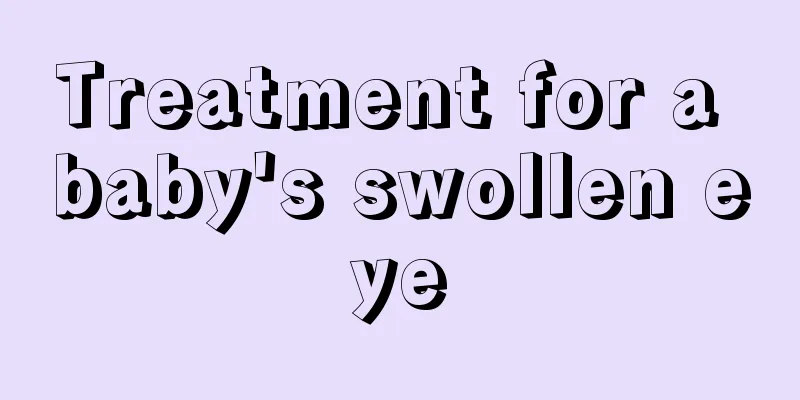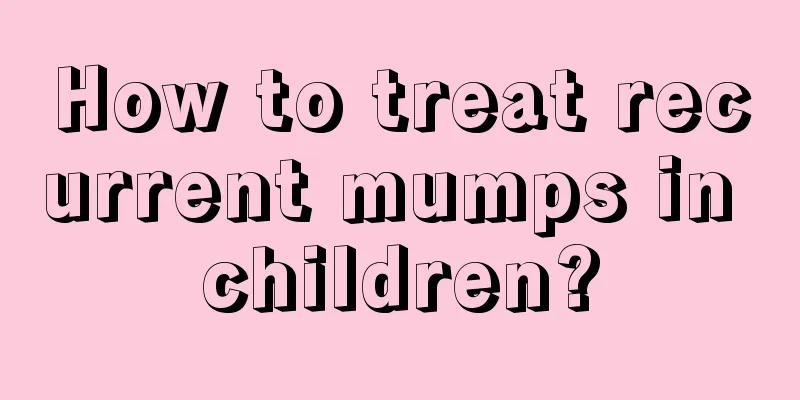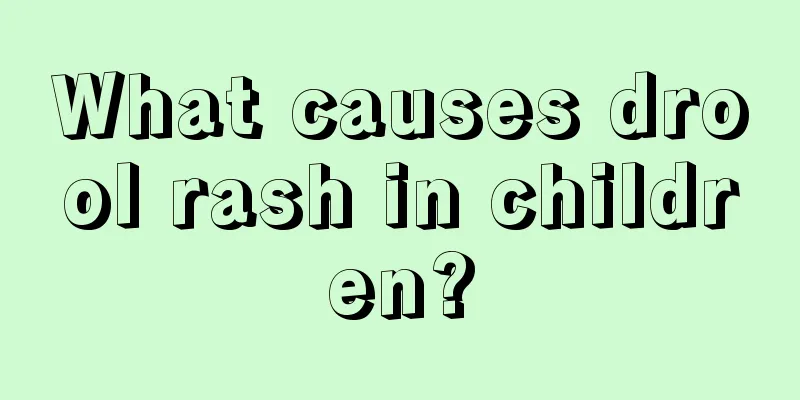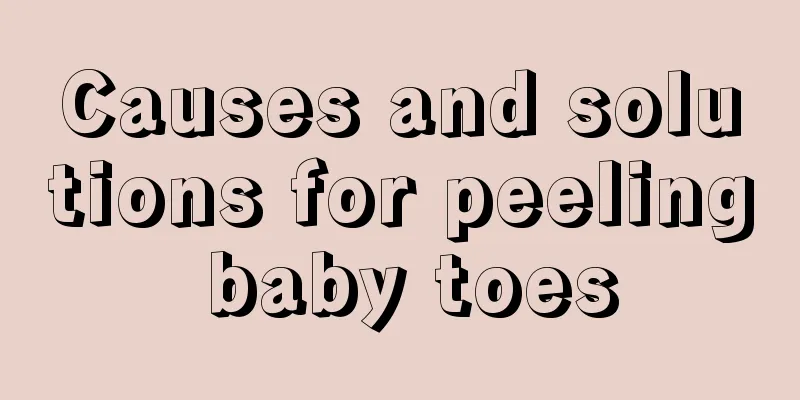What is the normal heart rate for a newborn baby?
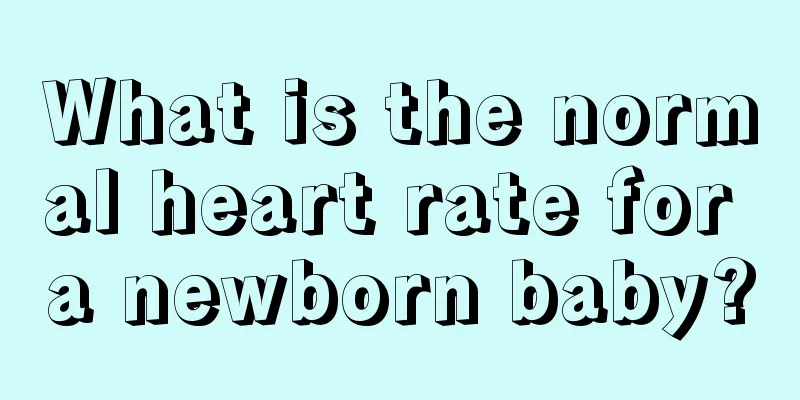
|
The heart rate of a newborn is different from that of a normal adult and can change due to a variety of factors. If some newborns suffer from heart disease, the child's heart rate will be different from that of normal children. Therefore, parents must pay attention to their children's heart rate. If you find that your child has an abnormal heartbeat, seek medical attention immediately. So, what is the normal heart rate for a newborn?
The younger the age, the faster the heart rate. The heart rate for newborns is 120-140 beats/minute, 100-120 beats/minute for 2-3 years old, 80-100 beats/minute for 4-7 years old, and 70-90 beats/minute for 8-14 years old. Crying and fever increase the heart rate. When the body temperature rises by 1°C, the heart rate increases by 10-15 beats/minute. The younger the child, the faster the breathing. The respiratory rate of newborns and children under 3 months old is about 45-50 times/minute, and then gradually slows down with age, reaching 20 times/minute at 10-14 years old.
1. Arrhythmia causes hemodynamic changes due to too fast or too slow heart rate and uncoordinated atrioventricular contraction. The extent of the impact on hemodynamics depends on whether the heart is normal and its compensatory function. 2. Children's breathing rate is easily affected by many factors, such as: emotional fluctuations, crying, physical activity, increased body temperature, anemia, respiratory, circulatory, nervous and other system diseases can all cause breathing to speed up or slow down. 3. Some arrhythmias may cause changes in heart sounds in addition to changes in frequency and rhythm. For example, in case of first degree atrioventricular block, the first heart sound is often weakened. The first heart sound is enhanced during paroxysmal supraventricular tachycardia. During atrial fibrillation, the heart sounds vary in strength. During complete atrioventricular block, the first heart sound is sometimes very loud and is called a "cannon sound."The normal respiratory and heart rate values of infants and young children fluctuate within a range and are not completely fixed. If parents discover during a physical examination that their baby's breathing and heart rate exceed normal levels, they should immediately inform the doctor to see if the baby has heart disease. If the baby has arrhythmia or multiple heart diseases, they should seek treatment immediately. |
<<: What's wrong with my child's fast heart rate?
>>: What causes a child's heart rate to be too fast?
Recommend
Why does my baby always hiccup at night?
Hiccups are not unfamiliar to us, and they occur ...
What to eat for children with stomachache
What should children eat when they have stomachac...
What should I do if my child has a fever of 38.5 degrees?
Nowadays, most families have only one child, and ...
What to do if your child has intestinal gas? Do these things
Hernia is also commonly known as hernia. It is a ...
What are the symptoms of formaldehyde allergy in children?
Everyone knows that formaldehyde is a very danger...
What to do if your child keeps having a runny nose
Runny nose is a common symptom of cold. To improv...
My child's testicles hurt, what's wrong?
The term "balls" refers to testicles, w...
At what months can babies crawl?
Many mothers observe their children's various...
Children's nails are uneven
The surface of the nails looks rough and very une...
How to deal with children's lost teeth
Children are lively and active, so their teeth ar...
How to treat asthma caused by cough in children
Children's physical constitution is relativel...
What should I pay attention to when giving my baby BCG vaccine?
Infants need to be vaccinated when the time is ri...
What to do if your child keeps picking his belly button
When humans are still in the mother's belly, ...
What should children eat if they are calcium deficient?
The phenomenon of calcium deficiency in children ...
Red rash on children's chin
If your baby has a lot of red rashes on his chin,...


